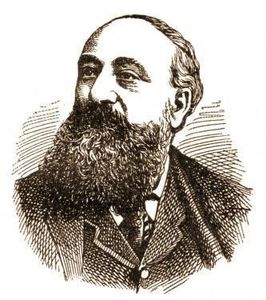MissScarlett: <London Daily Chronicle & Clerkenwell News>, July 29th 1871, p.5:<MIDDLEMAS V. WILMER - A TURF TRANSACTION.
The plaintiff in this case, Andrew Middlemas, 5, Cross-street, Essex-road, sued the defendant, Mr. George Wilmer, of 8, Mayfield-terrace, Dalston, for £3, balance of wages. - The defendant was represented by a solicitor, and the plaintiff conducted his own case.
Plaintiff said he was engaged by defendant at £4 per week for two weeks, and £2 10s. for a fortnight afterwards as clerk to book bets. He did not make the bets.
Defendant's solictor submitted to his Honour that this was an illegal transaction, and that consequently the plaintiff could not recover.
His Honour said he could not hold that it was an illegal transaction. If a man employed another to make a bet for him, the latter could recover the amount he had expended, although the former could not sue for the bet. That had been decided by the Master of the Rolls in the Marquis of Hastings' case.
Plaintiff said the defendant had paid him £4, £2, £1 10s., and £2 10s., making £10 altogether, leaving a balance of £3 now sued for.
In cross-examination he said he would swear he had not received as much as £20 from defendant, but only the amounts he had stated. He did not ask defendant to continue him in his service, and he would not go into it again if he gave him £20. Defendant gave him £4 to buy clothes with, but that he had mentioned. He also paid plaintiff's travelling expenses, as that had nothing to do with his salary.
Defendant said when he engaged plaintiff the understanding was that he should receive £4 the first week, and if he did not succeed in winning plaintiff money it was to be reduced to £2 10s. afterwards. He did not win any money, and the salary was accordingly reduced and paid regularly every week. The plaintiff had lost as much as £110 for defendant in the four weeks. Defendant had only been on the turf a few months, and he was determined not to go on a racecourse again as long as he lived. The plaintiff never won a penny for him, although he said he should be sure to win. He always treated the plaintiff liberally, and gave him £2 to buy clothes with, as he was so shabby as not to be presentable. He had paid plaintiff all that was due to him. The plaintiff had behaved shamefully, and called defendant a thief and a liar in the "ring," and advised persons not to pay him any bets. He considered that the plaintiff owed him money instead of his owing plaintiff, and that the present action was only an attempt to extort money, and in fact to rob him.
His Honour said he was satisfied the plaintiff had been paid all the defendant agreed to give him. He should give judgment for defendant, with costs.>
There's very good reason to believe that George Wilmer was, in fact, Gossip. The embarrassing nature of the case being the obvious motive to use an alias.
In the 1871 census (taken on April 2nd), the Gossip family (George, wife Alicia, son George and two servants) were living at 8 Mayfield Road, Hackney. However, a <George D H Gossip> joined a Freemasons' Lodge in London in October 1871 and the address is recorded as 8 Mayfield Terrace - the same as that given for George Wilmer above (Dalston, one should note, being part of Hackney). It wasn't unknown then for a street to be comprised of sections of housing, separately built, called Terrace, Row or the like.







